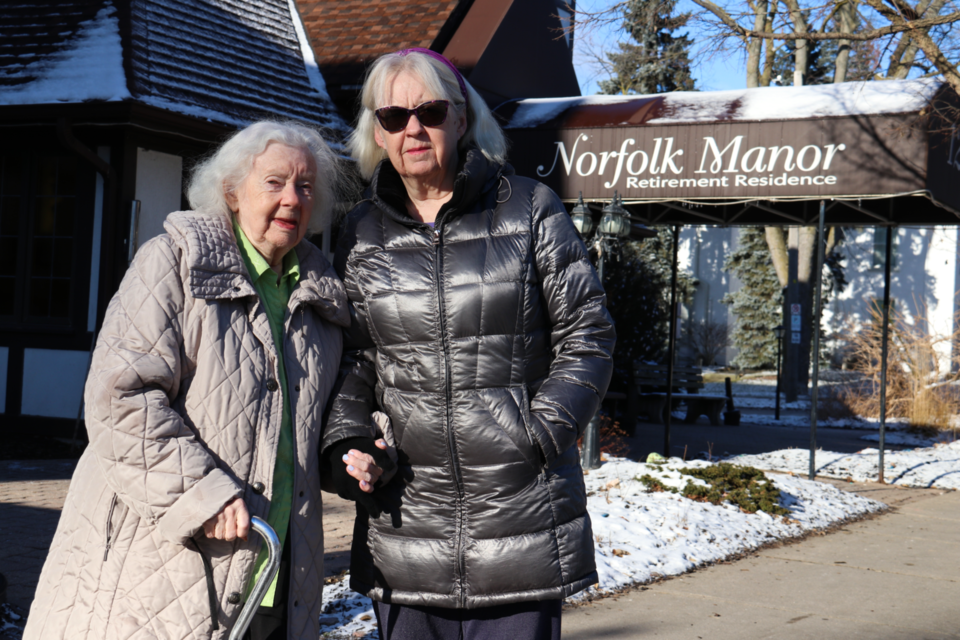After at least 20 years, the Norfolk Manor retirement home is ending its subsidy agreement with Wellington County.
The agreement, which is part of a longstanding program aimed at filling the accommodation affordability gap for older adults in retirement homes, will officially end on Jan. 30.
Owner David Ing cited “operational and staffing challenges combined with changes with how the County works with their community partners” as the reason for ending the agreement. He emphasized it’s not a financial issue, but didn’t elaborate further.
That change means residents of Norfolk Manor currently on the subsidy will have to either pay full price or move elsewhere, while providing 30 days notice upon moving out, according to a notice sent out on Nov. 30.
The regular rate for a semi-private room at Norfolk Manor is $3,430 a month, while the subsidized rate averages at around $2,171, though it varies with each person.
“The residents themselves are subsidized. So we agreed with the county to provide accommodation at a lower rate, and then the resident puts in what they have as income, and the county would top them up,” Ing said.
"The subsidy provided by the County will not be paid to Norfolk Manor going forward, however the county may continue to subsidize the resident directly," he said. "The resident will be responsible for the whole rent, as outlined in the current agreement, and associated care and services costs that come with living in a retirement home should they choose to stay."
The subsidy program has around 100 residents across Guelph and Wellington County, with eight of them residing at Norfolk Manor.
Ing said he made sure there was capacity at Heritage House, the only other retirement home in Guelph with a subsidy agreement in place, before notifying the county. Subsidized residents can move there, so long as the county approves it.
According to Mark Poste, director of housing with the County of Wellington Housing Services, the county is “in discussions with (Heritage House), as well as the individuals that are impacted by this change and interested in this option.”
Among the residents looking to move is 92-year-old Barbara Fairbanks, who has lived at Norfolk Manor for around 20 years.
“There’s no way any of us in my family could come up with (with the money to) keep her there” at full price, said her daughter Dawn Fairbanks, who isn’t thrilled about the change.
Dawn said they felt rushed into making a decision to move in case space at Heritage House filled up and she had to move her mother even further away.
“And then what?” she said. “This is going to be hard enough for my mother to be (on the edge of) town.”
Dawn has an adult son with special needs who lives nearby and visits Barbara several times a week, but he won’t be able to once she moves.
“So it’s going to affect both of them,” she said.
Norfolk Manor is Barbara’s home, and she considers her friends there to be like family. Plus, having suffered two heart attacks, the stress of it all isn’t good for her, Dawn said.
Poste said as the agreement reaches its end, the county will still be looking “for opportunities to continue to support the accommodation affordability gap for those impacted by this change, whether it’s there or elsewhere.” However, he couldn’t specify what that support might look like.
He said ending the agreement was within Ing’s rights, but that it was a shame.
“It is a shame when we lose partners, but we’re just going to try to support the individuals that are impacted,” Poste said.
